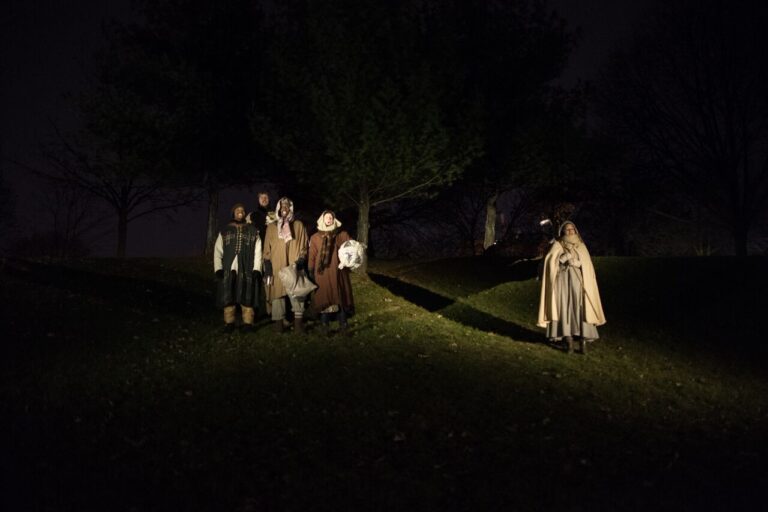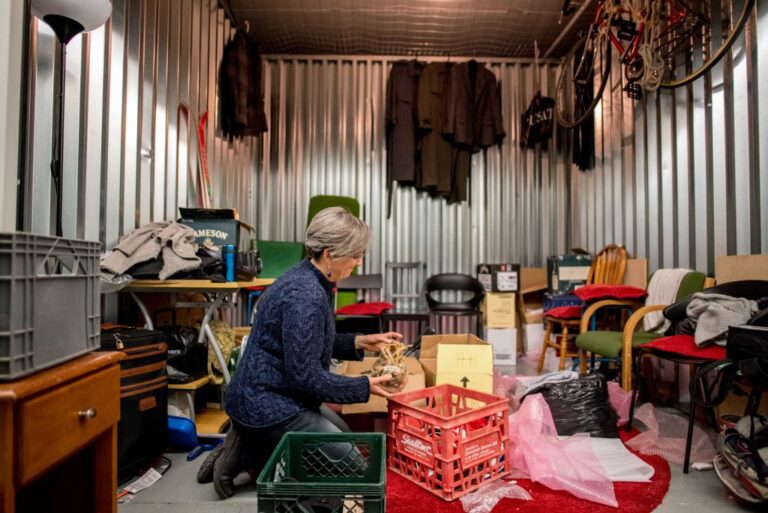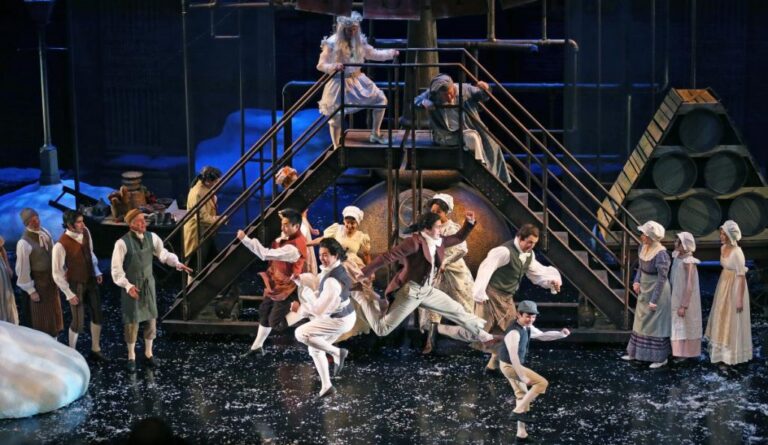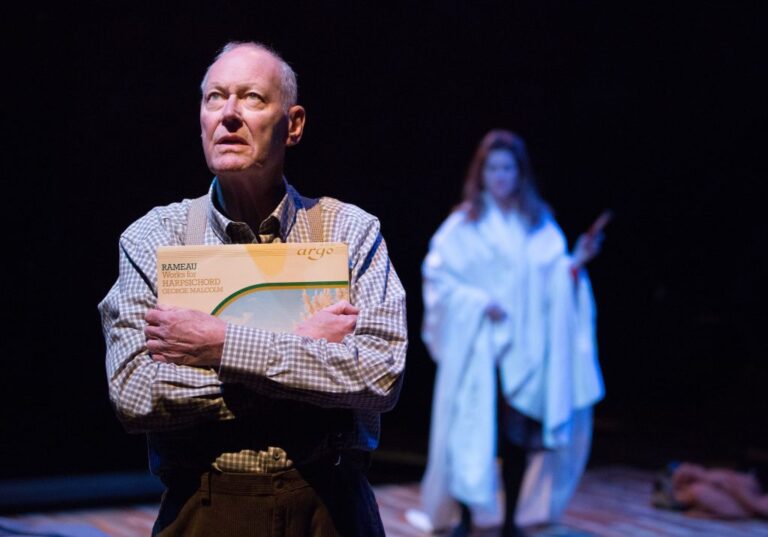Review: Poison
Poison
Coal Mine Theatre
By Lot Vekemans. English translation by Rina Vergano. Directed by Peter Pasyk. At Coal Mine Theatre. Runs until December 3.
NOTE: Because there were multiple openings on a single night, Coal Mine Theatre allowed me to review the final preview of Poison.
How do people who experience loss move forward? The delicate but slowly gripping production of Poison gives us a glimpse into the lives of two such people.
He (Ted Dykstra) and She (Fiona Highet) haven’t spoken in nine years, after the death of their son and the unravelling of their relationship. Upon learning that two hundred graves have to be moved, including their son’s, they meet to discuss with a cemetery official what’s to be done.
While they wait for their appointment, they talk tentatively. Pleasantries. In Dykstra and Highet’s nuanced, layered performances, we see the bond they shared when their marriage was strong; the good-natured banter, shared jokes, intimacy. We also see the damage that grief can wreak on a marriage. He has moved on with his life; She is mired in sorrow, still angry that he left her.
She is the first to throw an accusing barb, and, over the course of their wait, shows herself to be angry and critical. These sharp moments are coupled with ones of profound tenderness from He, who is gentle and considerate. One senses that He must have had patience to stay in the marriage for so long.
The production is beautifully directed by Peter Pasyk, who keeps a delicate hand on the gradual reveal of how loving this troubled couple once was, what drove them apart, and what remains that still binds them. The set, created by Patrick Lavender, is all white: floor, walls, chairs, wastepaper basket, and watercooler, as if we are in a cold, sterile science lab examining a specimen of marriage and grief.
Playwright Lot Vekemans has written a meditation on these subjects; how grief can lead one partner to freedom and keep the other stuck, wallowing, unable to move. At one point He sings She the song that saved him: “It Must Be So” from Candide, in which a man laments he’s lost everything but that “there is a sweetness in every woe.” The song might reflect his optimistic attitude and his efforts to comfort her.
No one shows up from the cemetery to discuss the important matter with He and She, giving them a chance to have a conversation they should have had years before. Is this an obvious ploy in the playwriting? Perhaps. But the play is so well written, giving such a searing examination of grief and the damage it causes, and the production is so fine, I didn’t care.
For tickets or more information, click here.














Comments